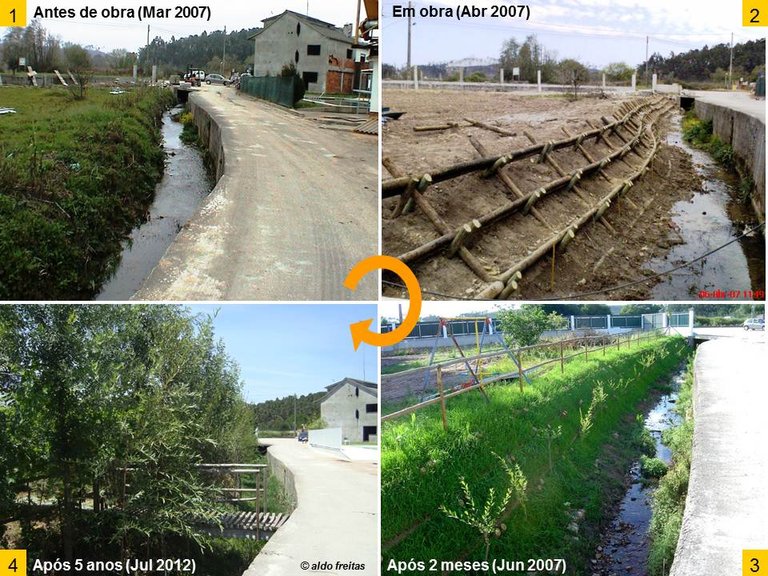Random information #15
Soil bioengineering
It's a discipline of civil engineering. People call it different things but the most used designation in english language is soil bioengineering.
The foundations are pretty basic, really. Heavy materials and techniques should be used when they are really necessary and every opportunity that exists to keep an intervention light and less artificial should be taken. Living material (plants) should be used together with non-living material (stones, concrete, iron, dead wood, etc.) in order to get a better result.
Well, the idea is not to build a skyscraper. I'm talking about interventions to prevent soil erosion, slope consolidation, riverbanks stabilization, protection from wind, etc.
All these are examples for which conventional solutions would work fine, as far as the technical functions are concerned.
Those who think the territory and consider balances, dynamics and impacts are one step further and end up using a mixed approach of the classic civil engineering with bioengineering, trying to get the best of both.
A concrete wall probably isn't the best solution for ecological or landscaping functions. A living wall may not be strong enough to hold a steep slope. Both are useful in their scope and range of application.
For emergency solutions we cannot wait for plants to grow. For elastic, self-designing and adaptative solutions plants are a better choice than concrete or steel. If we need both features, a mixed solution may be a good choice.
Alert: This is not gardening. Don't use your most beautiful plants and expect they consolidate the dangerous slope near your house.
There are many techniques available in bioengineering, some really light and easy to use, others that involve deep knowledge of the materials, the species, the soils, the weather, etc. It's green but the word engineering is there for a reason. It involves calculations.
This is a topic I really enjoy. Actually this was a main topic of my degree. I chose a different path focused in natural resources management and landscape ecology, and didn't really get the chance to learn a lot about the bioengineering projects. Fortunately, some of my colleagues have become speciallized in this discipline and are doing a very good job building solutions for several problems.
See you tomorrow for more Random information
RMach

Very informative. I appreciate you posting this.